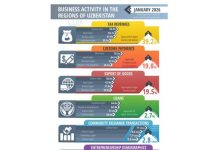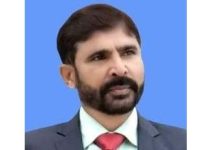Mohammad Abdullah Gul
The situation in Afghanistan has been rapidly changing in the last few months. After a prolonged standoff in Presidential elections between the two leading aspirants, John Kerry had to ultimately step in to break the stalemate. Dr. Abdullah eventually agreed to cede power to Ashraf Ghani and form a unity government, with himself taking over as CEO. This vital breakthrough was achieved at a critical time when the US led ISAF was packing its baggage to exit from Afghanistan, which it had been occupying for the last 13 years. The US having failed to accomplish the objectives set forth for Operation ‘Enduring Freedom’ and failing to defeat the Taliban, folded up its mission on December 28, 2014 and handed over the security of the country to Afghan National Army (ANA). Under the Bilateral Security Agreement, the US-NATO has left behind a residual force of 15,000, (mainly US-UK troops) mainly to continue imparting training, technical assistance to 350,000 Afghan National Security Forces (ANSF) till 2016. However, this force will not only man five military bases, but will also provide close air support and intelligence to the ANA in its fight against the Taliban, who have neither accepted the results of the elections nor the stationing of residual force. In anticipation to the new round of fighting, the left over force has launched a new operation codenamed ‘Resolute’ from January 01, 2015.
With the departure of ISAF, the burden of security of the Afghan State has fallen upon the shoulders of non-Pashtun heavy ANSF. The inherent weaknesses of the ANA and Police have often been discussed in detail. Tajik and Uzbek heavy ANSF are rived in discipline problems, large-scale desertions, drug addiction, corruption, weapon-stealing, lack of will to fight. The majority group of Pashtuns is sparsely represented in the ANSF. These grey areas coupled with sense of demoralization have enabled the Taliban to penetrate their ranks and to trigger green-over-blue attacks as well as high profile attacks in Kabul and even northern Afghanistan. The Taliban enjoy sway over 70% territories and have set up their own judicial system in the rural areas and also a rudimentary infrastructure of governance. They have intensified their attacks and in case no agreement take place with the Afghan government, they are likely to step up their attacks in next spring to force the residual force to quit. These challenges and uncertainties get compounded in the wake of wobbly unity regime which has thus far not been able to cobble together a cabinet, with seats equally divided between Ghani and Abdullah led political parties. Tussle is over few important ministries.
Being an economist, Ghani knows that neither he will be able to function nor his country will progress until peace is restored. He has realized that India is part of the problem and not the solution since it has been fomenting trouble in Pakistan using Afghan soil and correspondingly spoiling Pak-Afghan relations which are immediate neighbors. He also knows that Pakistan is the only country which has some influence over Taliban and it genuinely seeks peace in the region. With these considerations in mind, he has taken substantial steps in a very short time to remove the baggage of distrust piled up by Karzai who was overly pro-India. In the last few weeks there has been flurry of exchange of visits by civil and military leaders and the level of cooperation in various fields has up surged. While Islamabad wants the new Afghan regime to disallow India to use its soil for exporting terrorism into Pakistan and to cooperate in eliminating terrorism, Ghani wants Pakistan to persuade the Taliban to join his government or at the least refrain from upsetting the unity government which is still far from stable.
Notwithstanding prolonged hostility of the US against the Taliban, what is interesting to note is that at the end of the day, Obama administration announced that Mullah Omar is not their enemy and that they would not attack the Taliban as long as they refrain from attacking US targets. The US has not objected to the opening of the Taliban office in Doha despite the fact that Doha peace talks had fizzled out inconclusively in June 2014 because of Karzai’s obstinacy. This softness when seen in context with Washington conceding to Ashraf Ghani’s policy of preferring Pakistan over India and letting China to help in restoring peace in Afghanistan indicate a paradigm shift in the American policy in Afghanistan. It implies that the US will have no objection if the Taliban agree to share power even as a senior partner as long as the future broad based government maintains friendly ties with USA. It will also not object to China’s heavy economic investment in Afghanistan and to cultivate ties with Taliban through Pakistan. Already the Chinese have promised to invest a sum of $ 1 billion in Afghanistan.
This major shift in the US policy has occurred because of its utter failure in Afghanistan, a total mess in Middle East, failure to topple Assad regime in Syria, emergence of a new threat in the form of Da’esh, China’s phenomenal rise as an economic giant, Ukraine crisis, and Russia’s assertiveness. These concerns have made the task of the US to shift its pivot to Asia-Pacific that much challenging.
In the backdrop of above narrated developments one can draw following conclusions:
- The Americans have all but given up their desire to hold Afghanistan for a protracted period. All they want to do now is to use Afghanistan as a giant aircraft carrier with at least 5 operational airfields on board from where they could strike an emergency move in any direction north, east, west or south. For this purpose, retention of Afghanistan as a central strategic position has become that much more important.
- Inevitably, America’s tilt towards Pakistan in dealing with Afghan affairs have thrown India out of balance which had earlier on been given a proxy role to control and manipulate Afghanistan for its own and the US strategic interests. One can now safely say that India has lost the Great Game in the Hindu Kush.
- Mullah Omer has stood the test of time and is acceptable to the US now because he couldn’t be traced despite the hunt since 2002 and has won the war. Although he is not enjoying good health, he still maintains effective control over his Shura. Few groups which earlier on were trying to break loose have now been chastised.
- Other than some TTP leaders who have pledged their allegiance to Abu Bakar Baghdadi, none in Afghanistan among the resistance forces has defied Mullah Omar.
- Pakistan is in trouble largely because of leadership crisis, weakness of judiciary and segment of media towing foreign agenda. Economic conditions are particularly becoming hopeless. Sharp fall in the oil prices internationally has brought marginal relief but government has not transferred the benefits to its people. Electricity load shedding is on the increase and gas is in short supply. Prices of daily commodities are still very high and so is the case with state of unemployment. The ruling regime is lurching from one crisis to the other and has so far not provided any relief to the people.
- Military is trying its best to retrieve the situation but in the process has deployed 170,000 troops in restive areas, has lost over 5000 officers and men and is spread thin over the country. After the Peshawar incident which jolted the country, the political squabbling has subsided for a while, but no sooner the wounds of the tragedy will begin to heal, the politicians will once again get at each other’s throat and try to topple the apple cart. People are looking more and more to the Army to redeem their misery.
- On the whole it appears that the stage is getting set for midterm elections.
The Writer is Director General Measac Research Center.











